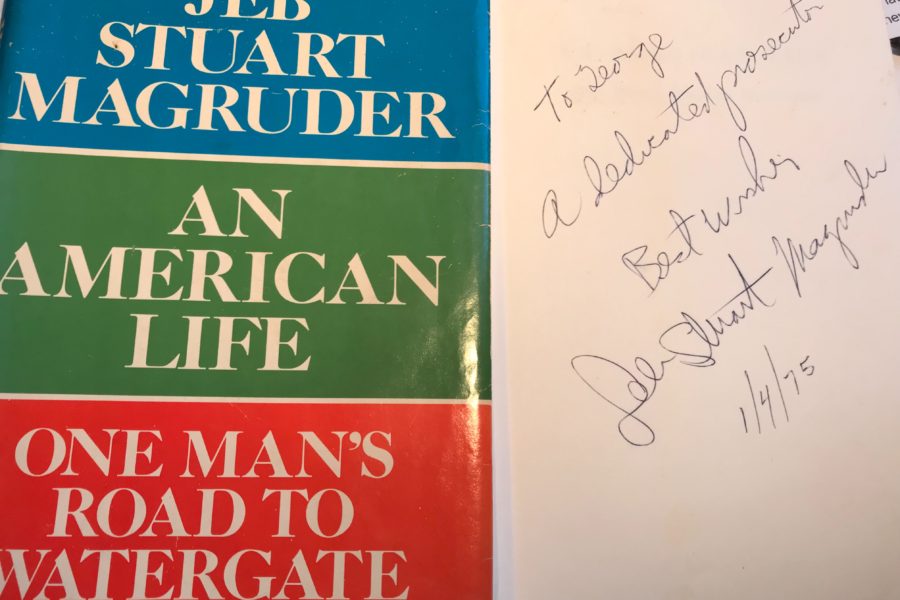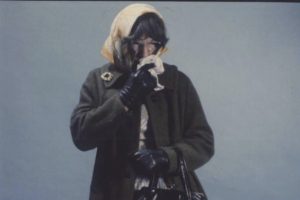In the running-around-with-their-hair-on-fire department, the Congressional Democrats just topped themselves with yesterday’s bizarre testimony of convicted felon John Dean before the House Judiciary Committee. Students of history may recall that Dean served in the Nixon White House as Counsel to the President and pled guilty in 1974 to obstruction of justice for his role in covering up the ties between Nixon’s Committee to Re-Elect the President and the Watergate burglary. Since then, Dean has become a CNN commentator.
Under the leadership of Rep. Jerrold Nadler (D. NY), the committee is investigating whether or not President Trump obstructed justice based on the innuendo-laden report of Special Counsel Robert Mueller. Despite the fact that Mueller’s cohort of Hillary Clinton acolytes did not charge Trump with obstruction of justice and Attorney General William Barr and Deputy Attorney General Rod Rosenstein (who appointed Mueller) determined that there had been no obstruction, Nadler is hoping to use the unsubstantiated and discredited allegation to impeach the President.
In his testimony before the committee, Dean conceded that he was not appearing as a fact witness and did not have personal knowledge as to the truth or falsity of a single fact in Team Mueller’s report. Instead, his role was to provide “historical context” within which Trump’s actions could be assessed. So Dean appeared, in effect, as an expert witness on how to commit obstruction of justice, a crime which involves hiding the truth.
The Republicans on the committee raised all of the obvious points about Dean’s admitted criminal conduct in the Watergate conspiracy. But it was this exchange between Dean and Rep. Jim Jordan (R. OH) that particularly caught my interest.
JORDAN: Today Chairman Nadler brings in front of the Judiciary Committee a guy [Dean] to talk about obstruction of justice who went to prison in 1974 for obstruction of justice.
DEAN: I did not go to prison.
JORDAN: Okay. You pled guilty to obstruction of justice…
And that rang a bell in the deep recesses of my aging frontal lobes.
After pleading guilty to obstruction in the Watergate case, Dean was sentenced to imprisonment for a period of one to four years. So when he later testified against his co-conspirators in the Watergate cover-up trial, the government was able to represent to the jury that he hadn’t gotten a sweet heart deal for his testimony and had nothing to gain by tailoring his testimony to satisfy the prosecutors.
But because he had flipped and cooperated, instead of prison, Dean was incarcerated in a safe house maintained by the U. S. Marshals Service at Fort Holabird, Maryland. Dean spent his days at the prosecutor’s office prepping his trial testimony and his nights and week ends in confinement. This lasted for 127 days until, following his trial testimony, Dean’s sentence was reduced with the agreement of the prosecutors to time served.
Bottom line: despite what the government had told the jury, by his testimony Dean was working his way to a sweetheart deal and had every incentive to shade his testimony to curry favor with the prosecutors.
In a 2004 interview, Dean said that he had been lodged at the Fort Holabird safehouse because “I was in the Witness Protection Program. The government was very concerned about keeping me alive.”
He then he added this tidbit:
“There were other government witnesses in that facility, yes. My next door neighbor happened to be a former mafia hit man who once told me, you know, John, I always liked Richard Nixon until I realized he wasn’t a very good criminal.”
That “mafia hit man” was one of my informants from my days as a Special Attorney with the Justice Department’s Buffalo Organized Crime Strike Force. I had been part of the trial team that successfully prosecuted Vito (not his real name) for extortion and related felonies. After his conviction, he flipped and became a valuable mob informant and government witness.
Instead of sending him to prison, we placed Vito in the Witness Security Program and lodged him at Fort Holabird. From there we regularly brought him to Buffalo where we pumped him for information and prepped him for various trials.
Among the safehouse inmates were Watergate conspirators John Dean, Jeb Stuart Magruder, Chuck Colson, and Herb Kalmbach. Vito got to know all of them.
One day, he asked if I would like an autographed copy of Magruder’s new autobiography “An American Life – One Man’s Road to Watergate”? Sure I would. So I sent a copy to Vito who had it signed by the author.
As I am writing this, I have before me Magruder’s book bearing the hilarious inscription “To George, A dedicated prosecutor, Best Wishes, Jeb Stuart Magruder, 1/4/75”. That Vito always was a card.
The book contains pictures signed by Colson and Kalmbach and this very special inscription: “To George – With best regards, John W. Dean, 1-4-75.”

So what did this mafioso think of the Watergate defendants? He spoke highly of Colson as a decent “stand up guy”. But he considered Magruder and Dean to be untrustworthy and duplicitous weaklings. And of Dean in particular he opined, “That guy would steal the silver dollars off his dead mother’s eyes.”
Coming from a hardened career criminal, that’s quite a peer review. But since Dean has offered himself to the Judiciary Committee and the world as an expert on committing crime, he may want to add it to his curriculum vitae. After all, what better testimonial to his criminal expertise can there be than that of a member of La Cosa Nostra, the Harvard of the underworld?
George Parry is a former federal and state prosecutor. He is a regular contributor to the Philadelphia Inquirer and blogs at knowledgeisgood.net. He may be reached by email at kignet1@gmail.com.




1 Comment
Leave your reply.